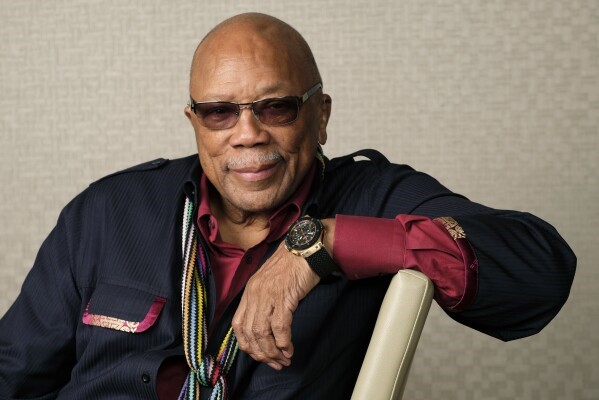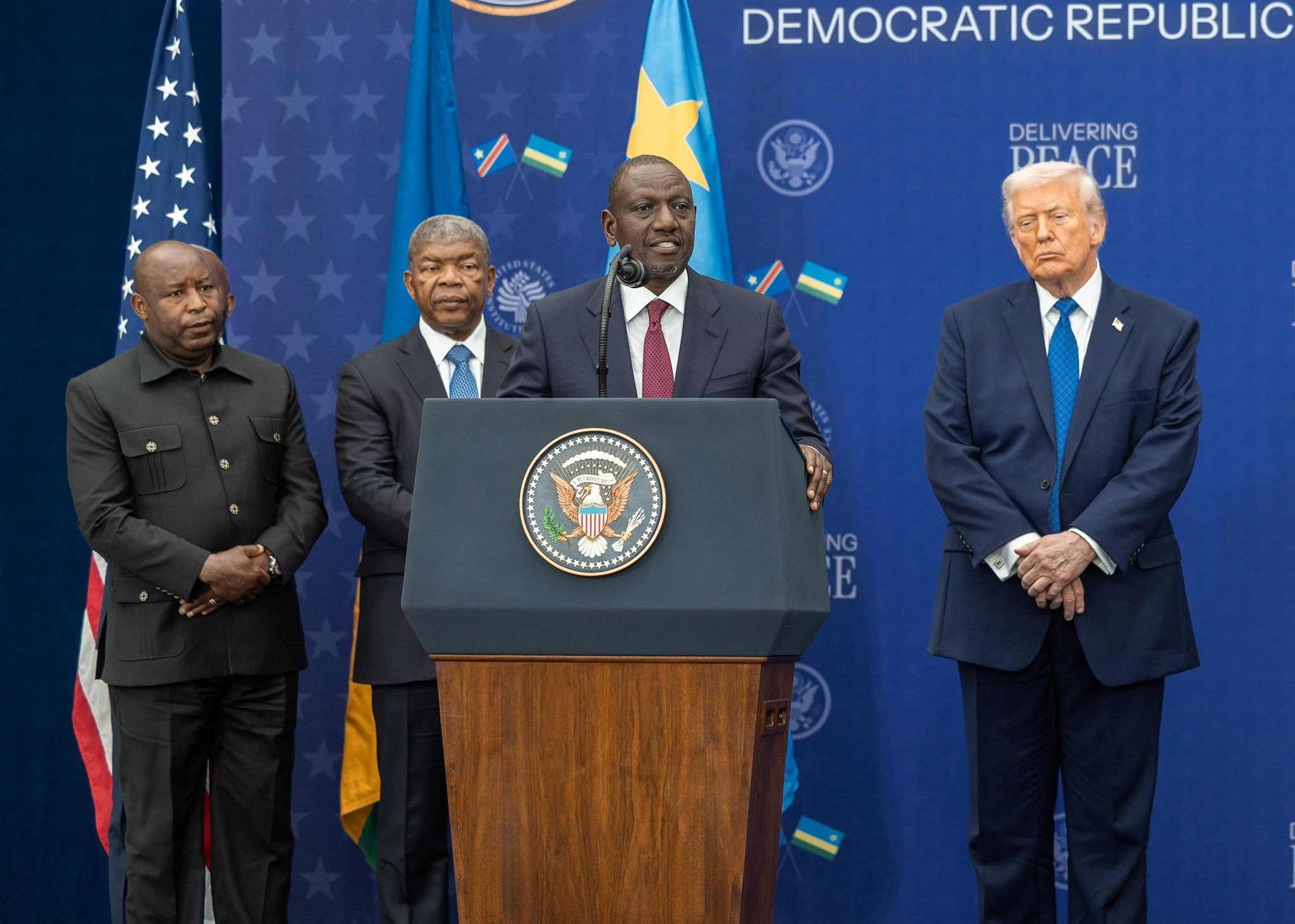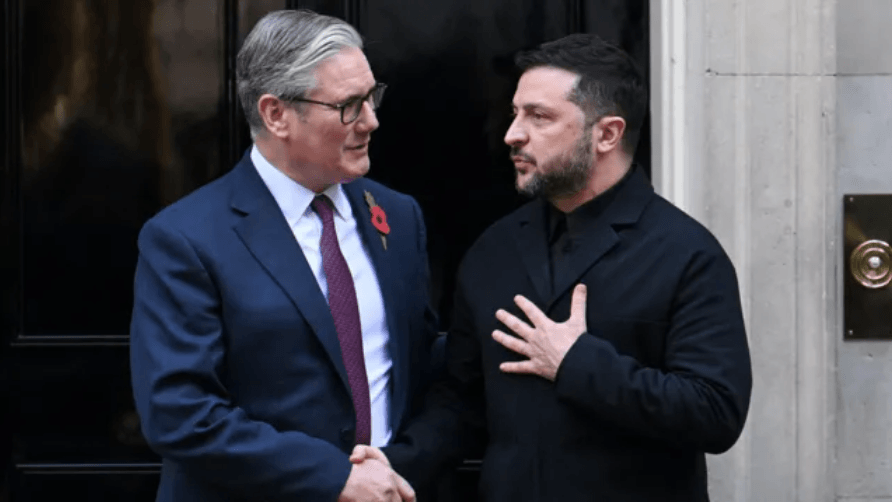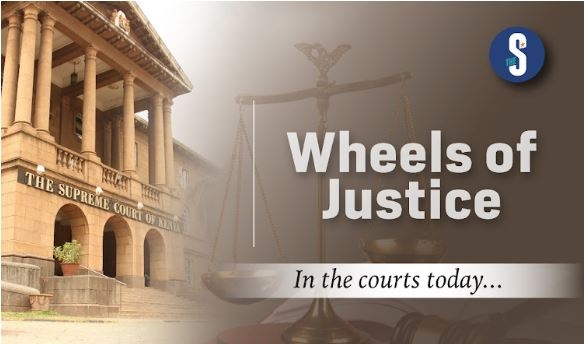
Quincy Jones lived for 50 years after attending his own memorial service.
When the musician suffered a brain aneurysm in 1974, his chances of survival were said to be so slim, and his stature so high, that his famous friends started planning a tribute concert.
Then aged 41, Jones had already made an indelible mark on American music as a performer, arranger, songwriter, producer, soundtrack composer and record executive.
He started out in the jumping jazz clubs of the 1950s; mastered soul, swing and pop on recordings by Dinah Washington, Frank Sinatra and Lesley Gore; and reached the top 10 in his own right.
Some of the biggest entertainers in America agreed to perform at his memorial.
When he pulled through, the show went ahead anyway.
Jones went along, accompanied by his neurologist, who gave strict instructions not to get too excited.
"That was hard to do with Richard Pryor, Marvin Gaye, Sarah Vaughan and Sidney Poitier singing your praises," he told Newsweek in 2008.
Even more exciting things were yet to come.
Jones went on to forge an era-defining partnership with Michael Jackson; oversee 1985's We Are the World, one of the biggest-selling songs of all time; craft hits for acts like Chaka Khan and Donna Summer; and work with the biggest names in hip-hop.
Few branches of American popular music were immune to his influence.
He grew up in the shadow of the Great Depression in the 1930s on the South Side of Chicago. His mother was taken to a psychiatric institution when he was seven and his father worked as a carpenter for notorious gangsters the Jones Boys.
Young Quincy wanted to be a gangster too. "You want to be what you see, and that's all we ever saw," he said.
He and his brother were "street rats" and, when he strayed into the wrong neighbourhood at the age of seven, a rival gang member "nailed my hand to a fence". Another injury came from an ice pick to the face.
His father took the family to Washington state, where one night Quincy and some friends broke into a community centre, looking for food. Inside, there was a piano.
"I touched it and every cell in my body said, this is what you'll do [for] the rest of your life," he told BBC Radio 4's Front Row in 2016.
The encounter "changed my life", he said in conversation with rapper Kendrick Lamar for a 2018 Netflix documentary, adding that, "I would have been dead or in prison a long time ago" if he hadn't discovered music.
The pair became firm friends outside the studio, too. "Seven double Jack Daniels in an hour... [Sinatra] invented partying," Jones recalled.
Meanwhile, he was forging a career writing soundtracks for TV shows and films including In Cold Blood, The Italian Job and Roots.
Another soundtrack was The Wiz, the 1978 film musical version of the Wizard of Oz, which starred Diana Ross and a 19-year-old Michael Jackson, who was looking to branch out after finding childhood fame in The Jackson 5.
The album was not just the fulfilment of Jackson's talent, but the culmination of Jones's career, as he used his peerless musical expertise to define the 1980s with a sleek and polished fusion of R&B and pop.
His choice of collaborators was one example of his knack for knowing how to make a good song great. For Beat It, he thought the single needed a rockier edge, so he recruited Eddie Van Halen to contribute a guitar solo. Legend has it that the solo was so explosive that a speaker caught fire in the studio.
The album earned Jones and Jackson the Grammy Award for producer of the year, while Thriller was named album of the year and Beat It won record of the year.
Jones famously posted a message on the studio entrance telling the stars: "Check your egos at the door".
But as well as revisiting his past, he was also firmly in the present, enlisting rappers like Ice-T and Grandmaster Melle Mel to appear on the title track.
Although he was in his 50s, he embraced rap music because he saw similarities with the energy of bebop jazz, and because may of its stars had risen out of hardship on the streets.
And rap stars reciprocated his affection, looking on Jones as an inspirational elder statesman of black American music. Even Kendrick and Dr Dre were awestruck when meeting him for the Netflix documentary, which was titled Quincy and directed by his daughter, actress Rashida Jones.
Jones used his status to try to stem the violence in the hip-hop world, convening the Quincy Jones Hip-Hop Symposium in 1995, where he addressed a room full of the nation's rap stars.
For Jones, social activism went hand-in-hand with his music.
"Civil rights work and political involvement was no longer an activity to do on the side. It became an essential part of life and humanity."
With that workload, and an accompanying longstanding drink problem, his family life and his health both suffered.
Jones was also in a relationship with actress and model Nastassja Kinski in the 1990s, and he had seven children in total.
His death on Sunday at the age of 91 has left the music world in mourning.

















